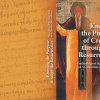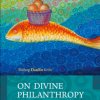Proceedings of the Symposium on St. Maximus the Confessor
The present volume is a collection of presentations delivered at the St Maximus the Confessor International Symposium held in Belgrade at the University of Belgrade from 18 to 21 October 2012. The Belgrade Symposium brought together the following speakers: Demetrios Bathrellos, Grigory Benevitch, Calinic Berger, Paul Blowers, David Bradshaw, Adam Cooper, Brian Daley, Paul Gavrilyuk, Atanasije Jevtić, Joshua Lollar, Andrew Louth, John Panteleimon Manoussakis, Maximos of Simonopetra, Ignatije Midić, Pascal Mueller-Jourdan, Alexei Nesteruk, Aristotle Papanikolaou, George Parsenios, Philipp Gabriel Renczes, Nino Sakvarelidze, Torstein Tollefsen, George Varvatsoulias, Maxim Vasiljević, Christos Yannaras, and John Zizioulas. The papers and discussions in this volume of the proceedings of the Belgrade Symposium amply attest to the reputation of Saint Maximus the Confessor as the most universal spirit of the seventh century, and perhaps the greatest thinker of the Church.
Twenty eight studies have been gathered in the present volume, which is organized into eight chapters, each of them corresponding to the proceedings of the Symposium, all of which are of intense interest and importance. Chapter One brings to light new evidence regarding the sources, influences, and appropriations of St Maximus’ teaching. His mediatorial role as one of the few genuinely ecumenical theologians of the patristic era is acknowledged and affirmed. Chapter Two offers some crucial clarifications on the relationship between person, nature, and freedom. In Chapter Three we find substantial discussion on body, pathos, love, eros, etc. New interpretive paradigms and insights are proposed in Chapter Four, while the next chapter presents the Confessor’s cosmological perspective in light of modern scientific discoveries. Some important ontological and ecclesiological issues are discussed in Chapter Six, while in Chapter Seven we are able to see what contemporary synthesis is possible through St Maximus’ thought. Chapter Eight offers further readings by engaging younger scholars who did not present their papers at the conference but whose studies were accepted by the organizers. In the final paper we find an important overview of the Symposium with a description of the conference’s flow. In an age of plurality and division, it is particularly important to know what our Tradition—shaped by the Fathers—can teach us. In any such endeavor, Saint Maximus the Confessor stands out as the most important theologian of the so-called Byzantine period. Yet his theology, assimilated and incorporated by Tradition, has relevance beyond any single historical period; in fact, the Confessor’s efforts to mediate between East and West distinguish his work as vital for contemporary theological discourse.





